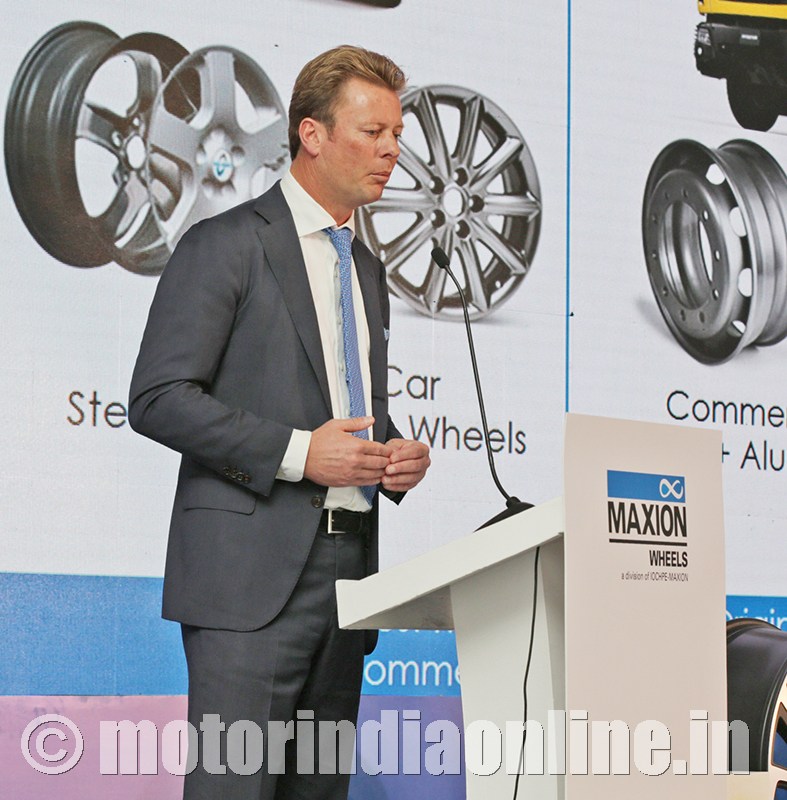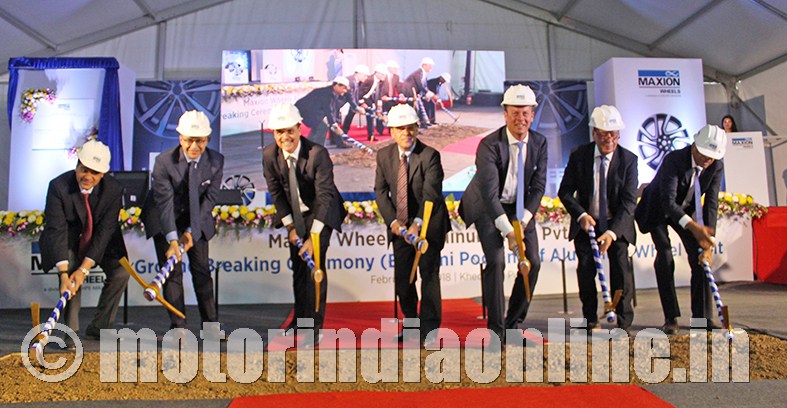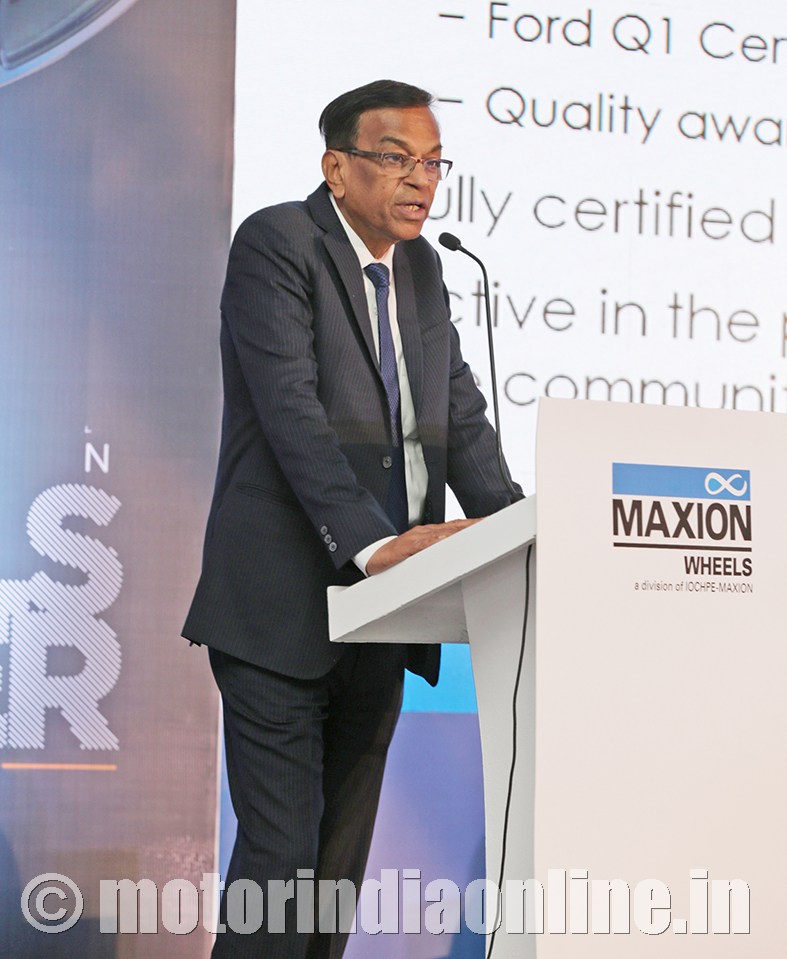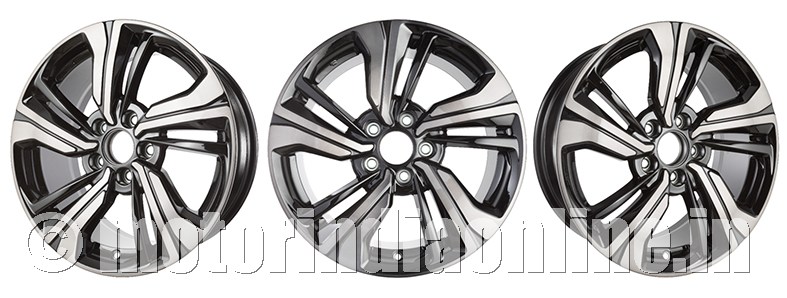New manufacturing facility coming up in Pune
Maxion Wheels, a division of Iochpe-Maxion S.A., a leading global supplier of wheels for passenger cars, commercial vehicles as well as agriculture, off-road, forklift and military vehicles, has zeroed in upon Khed city in Pune as a future site of its 25,000 square meters aluminum plant. Post the ground-breaking ceremony, Mr. Pieter Klinkers, Chief Executive Officer, Maxion Wheels, said: “With our new Pune passenger car aluminum wheel plant, Maxion Wheels becomes the first global light vehicle aluminum wheel producer in the Indian market.”

The proposed plant is in response to growing customer need, especially in a fastest-growing economy like India. The Indian passenger vehicles market is expected to grow at a CAGR of 8.6 per cent, rising from 3.7 million vehicles in 2013 to 6.6 million vehicles by 2022.
He added: “When our project is complete, we will produce four million aluminum wheels annually. In this first phase, an investment of more than $50 million will be made on the land and state-of-the-art plant and equipment for manufacturing two million wheels annually. Start of production is expected in the third quarter of 2019.”
The new wholly-owned operation, expected to initially bring more than 1,000 new direct and indirect jobs to the region, will produce low pressure die cast aluminum wheels with a high-end wheel finish. The plant will have an overall capacity of 4 million wheels, but initially will produce around 2 million wheels. The plant and process set-up will be included with premium bright machined wheels from the start. 32 low-pressure die casting machines, heat treatment, x-ray and 16 machining cells will be installed. It will also be equipped with a paint shop, with capacity for 2 million wheels; powder coat followed by wet paint base coat and clear coat. The wheels rolling out of the plant would be of 14” to 22” in diameter and 4” to 9” in width.

Aluminum wheels are more expensive than steel wheels, but the world over there has been growing acceptance of aluminum as a contemporary durable as well as aesthetic and design friendly wheels. “Five-six years ago there was almost no aluminum wheel in the market, and today it is almost 25 per cent. Almost every forged wheel is an aluminum wheel. It will get close to the global average where the share of aluminum is at 65 per cent. Even if we get to half of the penetration in India of what we see in the rest of the world, then we will have increase in penetration and growth in vehicle production. As a supplier who is already present in India with steel wheels, supplying customers all over the world, demand for making aluminum wheels kept coming in India,” explained Klinkers.
The polarization happening in the automotive industry has resulted in two different sets of vehicle owners. One would be the individuals and the other would be the co-operations. “One part of automotive would be individual owning big cars going for nice big, nice and shiny wheels-they will go for aluminum. Another would be the shared vehicles that just go from A to B. The user would not care who owns it but then these companies would opt for steel. We are happy to be present in both the segments,” added Klinkers.
With a focus on optimized design and light-weight technologies such as reduced rim thickness, rim burnishing, hollow hump and hollow spoke, Maxion Wheels is the world leader in the light-weight wheel market, and currently supplies aluminum passenger car wheels to every major OEM in the world. “We produce cast aluminum wheels at multiple plants throughout the world with a broad range of diameters,” beamed Klinkers.
In India the Kalyani Group that owns 15 per cent of the Maxion Wheels business, has done tremendously well in the last few years. The entity, known as Kalyani Maxion Wheels, has two steel wheel production plants in Pune, one each for passenger cars and commercial vehicle segments. While the car wheel plant produces four million wheels annually, the truck wheel plant is being expanded to produce about 1.5 million wheels yearly against 1.2 million units. However, Maxion Wheels, will go on its own when it comes to aluminum wheels in India.
“We have had this discussion whether or not the new plant should also be under the JV; but even the Kalyani Group needs to focus on its core business – aerospace, defence and trucks – and hence when they prioritized, we thought we should work on wheels, which is our focus area, while they will continue to help,” asserted Klinkers.
On the sidelines of the occasion, MOTORINDIA also spoke to Mr. Prakash Kodlikeri, Managing Director, Kalyani Maxion Wheels Ltd., on the current steel wheel market as well as the possibility of aluminum in commercial vehicles.
Excerpts:
When do you see the commercial vehicle market preparing itself for aluminum wheels?
It will happen progressively as the norms are formed and should see it happening beyond 2020. There are different ways of reducing the weight currently in the steel. For instance, earlier the weight of the wheel was 42 kg which has come to 34 kg in steel. We as a company lead in that mechanism as one of the lowest (weight) in the globe. By 2020, It will further go to 30 kg as we keep experimenting with different technology. As of now we have reached 34-35 kg for steel and aluminum is around 25 kg for same truck platform. The development of new, high strength steel grades and sophisticated manufacturing methods have enabled significant weight reductions for steel wheels and also allowed to meet the intricate aluminum wheel designs. Wheels could be the last thing that will be changed in CVs to aluminum. Even in Europe the use of aluminum wheels is less than 8 per cent in CVs. Today, people who prefer styling, would be ready to invest in aluminum and that possibility is highly in passenger vehicles at present in India.
Do you work with OEMs or tyre manufacturers when you plan to reduce weights of the wheel?
We work with the OEMs, and when they give RFQs, we are capable of giving the RFQs after thorough testing of the product, and if they accept we also show demo on our test beds as we have some of the world’s fantastic test beds. We conduct extensive computer modeling during the design phase of each wheel to ensure optimum solidification, load distribution and weight optimization. As of present, we already have RFQs in access of one-million units.
Given the infrastructure push and also increase in buses and last-mile connectivity, how has the market for steel wheels for CVs been growing?
Infrastructural growth needs CVs and for the last 3 years it has been on an up-swing. Last year’s growth was around 18 per cent for steel wheels for the industry and we have been doing remarkably well.
What are the medium- to long-term plans for the new plant?
As of now the industry requirement for aluminum wheels is four million in India out of which the country imports two million and we import around 300,000. By 2021-22, we would have two million wheels capacity and the land that we have acquired is for four million. We can make wheels from 14” to 22” in diameter.

